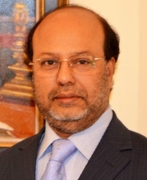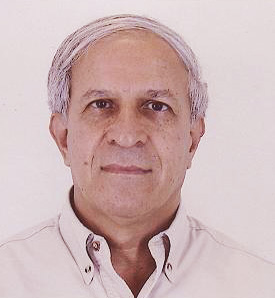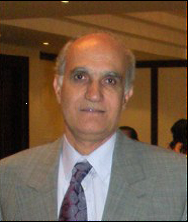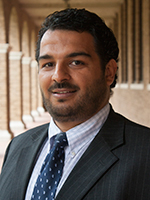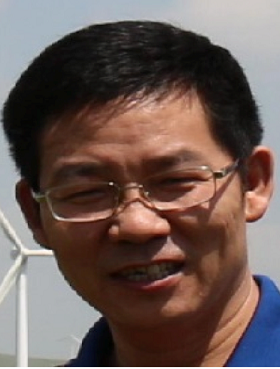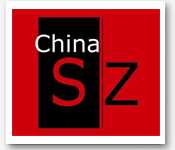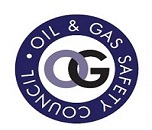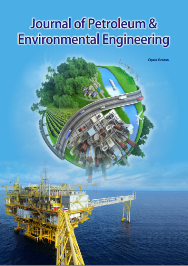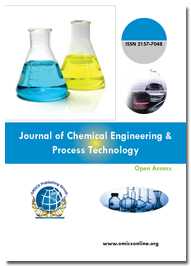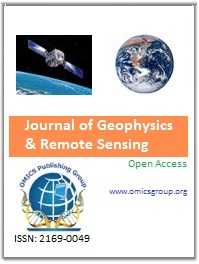Theme: Innovative Technologies Boosting Oil and Gas Industries
Oil Gas Expo 2015
- About Conference
- Sessions/Tracks
- Scope and Importance
- Symposium
- Workshop on Salt Diapirs
- Speaker Guidelines
OMICS Group cordially invites participants from all over the world to attend International Conference and Expo on Oil and Gas, scheduled during November, 16-18, 2015 at Dubai, UAE mainly focused on the theme “Innovative Technologies Boosting Oil and Gas Industries”. International Conference and Expo on Oil and Gas aims to bring together researchers, engineering, geologists, environmentalist and delegates from, oil and gas, petroleum and refinery companies. International Conference and Expo on Oil and Gas will keep abreast of all the latest developments – geopolitical, industrial and technological updates. There will be a join in round table discussions to facilitate unique interaction with all interested parties. Participants will have a platform to learn and implement key findings from real-life case studies which will also be helpful in expanding your customer base and do business with the key decision makers in your field
OMICS International Organizes1000+ Global Events Every Year across USA, Europe & Asia with support from 1000 more scientific societies and Publishes 500 Open Access Journals which contains over 30000 eminent personalities, reputed scientists as editorial board members.
During the period of 2009-2014, the global petroleum market has generated about $5 trillion in revenue and has posted a strong growth of 11.9%. During the same period the U.S market generated $730 billion in revenue and has generated a growth of 7.6%. According to a survey the projected oil demand of Organization of the Petroleum Exporting Countries is expected to increase from 9.5 million barrel per day in 2015 to 11.9 million barrels per day in 2035.
Oil Gas expo – 2015 is comprised of 13 Main tracks and 131 sub tracks designed to offer comprehensive sessions that address current issues.
Session 1: Latest Innovation in Upstream Process of Oil and Gas includes the Exploration Geophysics of Oil Recovery: onshore and offshore, Drilling and Production,Extraction Technologies, Hydraulic Fracturing, Spilling and ESI Mapping, Geoscience, Seismic Technologies, Exploration Development, Enhanced Oil Recovery and Reservoir Engineering.
Session 2: Midstream Processes: Technology and Innovation is the second part in Oil and Gas Industry is the Midstream Processes which includes Transport and Logistics, Pipeline Engineering and Transport Grid, Pipeline Corrosion control, Leak Detection, Road Transport and Environment, Route Optimization, Bulk Natural Gas and Oil Transport, Terminal Developers and Operators, Fire Protection and Emergency Response and Crude Oil Exports.
Session 3: Uplifting Conventional and Non-Conventional Downstream Technologies refers and includes the Petroleum Crude Oil Refining, Natural Gas Processing, Contaminants, Refining Technologies, Natural Gas and Condensate Treatmentand Processing and Commercial and Legal Structures.
Session 4: Impacts of Oil and Gas Industries focus on Environment, Health and Safety, Risk analysis and Assessment, Personnel training and Education and Emergency Response and Disaster Management Techniques.
Session 5: Petroleum and Petrochemicals includes New Technologies and Discoveries related to petroleum products, Chemical processes, Petrochemistry, Future Challenges, Marine and Petroleum Geology and Chemical Engineering.
Session 6:There are various factors which governs the working of Oil and Gas Industries. Industrial and organizational psychology, Collaboration and business models, Industrial Development, Green Technology, Industrial Ecology and Ecotechnology, Materials, Production, Infrastructure, Offshore Oil and Gas Drilling Companies and Market Analysis, Drilling Companies, Market Analysis, Production Costs, Recovery Techniques, Environmental impact and shortage are among the chief factors.
Session 7: Business Development and Investment Opportunities includes Global Oil and Gas Economy, Alliance & Partnering, Technology Services, Target Innovative Projects, Trading & Transportation, Price Risk Management, Methods and Tools to Improve Project Planning and Delivery, Efficiency and Price Management, Reserves Management, Production Management, International Co-Operation, Fiscal Regime, Project Management and Project Economics, Human Resources are the building blocks of Business Development and Investment Opportunities.
Session 8: The regulations and Ethics covers a wide range of business practices and procedures which includes Commercial and Legal Issues, Legal Framework, Health, Safety, Environment, Quality (HSEQ) Policy and Security, Uncontrolled Shale Gas Emissions, Legal, Fiscal System and Contracts, Energy Security and Geopolitics of Oil and Gas and Intellectual Property Rights.
Session 9: Technological Advances towards Crude Oil Refinery Products & Processes, Exploration Potential & Challenges, Technology & Innovation in Oil & Gas Industry, Machine Specific Oil and Gas, Synthetic Oil and Gas, Mixture of Oil and Gas, FEED - Front End Engineering Design, Development of mature oil fields, Oil Chemistry, Nanotechnology, Catalytic Engineering and Jet Fuels are of immense importance in the field of Oil and Gas industries.
Session 10: Advancement in Biofuels and Hydrocarbons: Potentials and Technical Challenges. The role of the biofuel industry is not to replace petroleum diesel, but to help create a balanced energy policy with the most benefit. Biodiesel is one of several alternative fuels designed to extend the usefulness of petroleum, and the longevity and cleanliness of diesel engines.
The greatest amounts of hydrocarbons are used as fuel for combustion, particularly in heating and motor fuel applications. The primary components of natural gas are methane and LNG/ CNG. We are all familiar with the use of Shale Gas/ Shale Oil, Biodiesel. We also know about the Hydrocracking, Fracturing Operations, Coal-Bed Methane and Coal Gasification and the Reserves.
Session 11: Modern Oil and Gas Exploration involves various innovative techniques to find the reserves. It involves Geophysics and various geological factors, the exploration risk and licensing related with it.
Session 12: Global Oil and Gas: there is global demand for Oil and Gas which is not going to decline for decades. Dubai, UAE and Qatar countries in Asia hold among the most important sites present in the world Oil and Gas scenario and world reserve. There are also continental Oil and Gas developments, Challenges in Oil and Gas developments, Gas industry and profession, Global Price Control and Price Monitoring and methods of pollution control which control the economy.
Session 13: Advances in Information Technology in Oil and Gas has always been the backbone for better network. Programming, Big Data and Analytics for Oil and Gas, Innovation in Architecture and Governance, Data management, IT Infrastructure and Service Management and Collaborative IT Project play an important role in Oil and Gas Engineering, Petroleum Geoscience and Pipeline Control.

Oil Gas Expo 2015 Conference is an oil gas and petroleum expo which is comprised of 13 scientific sessions and 131 sub-sessions which have designed to offer comprehensive review and discussion on the current topics and issues of dubai oil gas and petroleum expo. oil and gas conferences dubai is one of the gas and petroleum expo 2015 conferences which covers all the fields of petroleum and gas expo dubai. gas and petroleum conferences dubai a highly successful and respected among International global gas conference.
OMICS Group cordially invites participants from all over the world to attend 2nd International Conference and Expo on Oil and Gas, scheduled during November 3-5, 2016 at Istanbul, Turkey.
Track 1: Upstream Process:
The upstream segment of the business is also known as the exploration and production (E & P) sector because it encompasses activities related to searching for, recovering and producing crude oil and natural gas.
Upstream is the first chronological step in the oil industry. Thus, it is the upstream aspects of the oil process which occur first and must set a strong, early foundation for everything that will follow. Upstream can be broken into many components, but the main ones we’ll touch on are: searching out and selecting potential oil sites, evaluation of these sites, drilling exploratory wells, and operating these wells to extract crude oil.
Related conferences:
World Congress on Petroleum and Refinery, July 21-23 2016, Brisbane, Australia; 5th International Conference on Petrolium Geology and Petrolium Industry, December 1-2 2016, Dubai, UAE; Global Summit on Petroliferous Basins, December 07-09 2016, London, UK; 4th World Congress on Petrochemistry and Chemical Engineering, December 08-10 2016, Philadelphia, USA; 2nd International Congress and Expo on Biofuels and Bioenergy, September 1-3 2016 at Sao Paulo, Brazil; Africa Oil and Gas Sustainability Summit, November 16-18 2016, London, UK; South Texas Oilfield Expo, July 27-28 2016, San Antonio, USA; UNITI Mineral Oil Technology Congress, April 13-14 2016, Stuttgart, Germany; Annual Sub-Sahara Oil and Gas Summit and Exhibition, April 6 - 8 2016, Accra, Ghana; Marintec Indonesia 2016, November 23-25 2016, Jakarta, Indonesia.
Track 2: Midstream Processes:
Second part in Oil and Gas Industry is the Midstream Processes which includes Transport and Logistics, Pipeline Engineering and Transport Grid, Pipeline Corrosion control, Leak Detection, Road Transport and Environment, Route Optimization, Bulk Natural Gas and Oil Transport, Terminal Developers and Operators, Fire Protection and Emergency Response and Crude Oil Exports.
Related conferences:
World Congress on Petroleum and Refinery, July 21-23 2016, Brisbane, Australia; 5th International Conference on Petrolium Geology and Petrolium Industry, December 1-2 2016, Dubai, UAE; Global Summit on Petroliferous Basins, December 07-09 2016, London, UK; 4th World Congress on Petrochemistry and Chemical Engineering, December 08-10 2016, Philadelphia, USA; 2nd International Congress and Expo on Biofuels and Bioenergy, September 1-3 2016 at Sao Paulo, Brazil; Marcellus-utica Midstream Conference and Exhibition, January 26-28 2016, Pittsburgh, USA; Midstream Mexico, February16–18 2016, Mexico, USA; International Petroleum Week 2016, February 9-11 2016, London, UK; Pipeline Pigging and Integrity Management Conference, February 8-11 2016, Houston, USA; 3rd Annual North American Midstream Oil, Gas and LNG Infrastructure Finance Forum, June 16 - 17 2015, Houston, USA.
Track 3: Downstream Technologies:
The downstream sector refers and includes the Petroleum Crude Oil Refining, Natural Gas Processing, Contaminants, Refining Technologies, Natural Gas and Condensate Treatment and Processing and Commercial and Legal Structures.
Related conferences:
World Congress on Petroleum and Refinery, July 21-23 2016, Brisbane, Australia; 5th International Conference on Petrolium Geology and Petrolium Industry, December 1-2 2016, Dubai, UAE; Global Summit on Petroliferous Basins, December 07-09 2016, London, UK; 4th World Congress on Petrochemistry and Chemical Engineering, December 08-10 2016, Philadelphia, USA; 2nd International Congress and Expo on Biofuels and Bioenergy, September 1-3 2016 at Sao Paulo, Brazil; Saudi Downstream Conference 2016, March 8-10 2016, Jubail, Saudi Arabia; New Zealand Downstream 2016, March 2 - 3 2016 at SkyCity Auckland; Downstream Processing World Europe 2016, February 23 – 24 2016, Sofitel, Munich; Egypt Downstream Summit and Exhibition, February 26 2016, Egypt; International Downstream Week 2016, May 9-13 2016, Madrid, Spain.
Track 4: Oil and Gas Impacts:
Oil and Gas has immense impact on Environment, Health and Safety, Risk analysis and Assessment, Personnel training and Education and Emergency Response and Disaster Management Techniques.
Related conferences:
World Congress on Petroleum and Refinery, July 21-23 2016, Brisbane, Australia; 5th International Conference on Petrolium Geology and Petrolium Industry, December 1-2 2016, Dubai, UAE; Global Summit on Petroliferous Basins, December 07-09 2016, London, UK; 4th World Congress on Petrochemistry and Chemical Engineering, December 08-10 2016, Philadelphia, USA; 2nd International Congress and Expo on Biofuels and Bioenergy, September 1-3 2016 at Sao Paulo, Brazil; IADC International Deepwater Drilling Conference and Exhibition, March 15-16 2016, Rio de Janeiro, Brazil; Global Oil and Gas Turkey (formerly TUROGE), March 16-17 2016, Ankara, Turkey; SPE EOR Conference at Oil and Gas West Asia, March 21-23 2016, Muscat, Oman; SPE Improved Oil Recovery Conference, April 9-13 2016, Tulsa, USA; 2016 APPEA Conference and Exhibition, June 5-8, 2016, Brisbane, Australia.
Track 5: Petroleum and Petrochemicals:
Petroleum and Petrochemicals includes New Technologies and Discoveries related to petroleum products, Chemical processes, Petro chemistry, Future Challenges, Marine and Petroleum Geology and Chemical Engineering.
Related conferences:
World Congress on Petroleum and Refinery, July 21-23 2016, Brisbane, Australia; 5th International Conference on Petrolium Geology and Petrolium Industry, December 1-2 2016, Dubai, UAE; Global Summit on Petroliferous Basins, December 07-09 2016, London, UK; 4th World Congress on Petrochemistry and Chemical Engineering, December 08-10 2016, Philadelphia, USA; 2nd International Congress and Expo on Biofuels and Bioenergy, September 1-3 2016 at Sao Paulo, Brazil; 3rd International Conference on Petroleum and Petrochemical Engineering, January 12-13 2016, Penang, Malaysia; 18th International Conference on Petroleum and Petrochemical Engineering, February 25-26 2016, London, UK; PCIC 2016 — 2016 IEEE Petroleum and Chemical Industry Technical Conference, September 19-21 2016, Philadelphia, USA; Association of Petroleum Geologists Annual Convention and Exhibition 2017, April 02-05 2017, Houston, USA; American Association of Petroleum Geologists International Conference and Exhibition 2017, October 15-18 2017, London, UK.
Track 6: Oil and Gas Industries:
There are various factors which governs the working of Oil and Gas Industries. Industrial and organizational psychology, Collaboration and business models, Industrial Development, Green Technology, Industrial Ecology and Eco technology, Materials, Production, Infrastructure, Offshore Oil and Gas Drilling Companies and Market Analysis, Drilling Companies, Market Analysis, Production Costs, Recovery Techniques, Environmental impact and shortage are among the chief factors.
Related conferences:
World Congress on Petroleum and Refinery, July 21-23 2016, Brisbane, Australia; 5th International Conference on Petrolium Geology and Petrolium Industry, December 1-2 2016, Dubai, UAE; Global Summit on Petroliferous Basins, December 07-09 2016, London, UK; 4th World Congress on Petrochemistry and Chemical Engineering, December 08-10 2016, Philadelphia, USA; 2nd International Congress and Expo on Biofuels and Bioenergy, September 1-3 2016 at Sao Paulo, Brazil; 4th Kuwait Oil and Gas Summit, April 1 -12 2016, Kuwait City, Kuwait; International Oil and Gas Industry Exhibition and Conference, November 29- December 2 2016, Marina Bay Sands, Singapore; Nigeria Oil and Gas Conference and Exhibition, June 13-16 2016, Abuja, Nigeria; OSHA Oil and Gas Safety Conference, November 29-30 2016, Houston, USA; The Oil and Services Conference, March 9-10, 2016, San Francisco, USA
Track 7: Business Development:
Business Development in Global Oil and Gas Economy includes immense opportunities, Alliance and Partnering, Technology Services, Target Innovative Projects, Trading and Transportation, Price Risk Management, Methods and Tools to Improve Project Planning and Delivery, Efficiency and Price Management, Reserves Management, Production Management, International Co-Operation, Fiscal Regime, Project Management and Project Economics, Human Resources are the building blocks of Business Development and Investment Opportunities.
Related conferences:
World Congress on Petroleum and Refinery, July 21-23 2016, Brisbane, Australia; 5th International Conference on Petrolium Geology and Petrolium Industry, December 1-2 2016, Dubai, UAE; Global Summit on Petroliferous Basins, December 07-09 2016, London, UK; 4th World Congress on Petrochemistry and Chemical Engineering, December 08-10 2016, Philadelphia, USA; 2nd International Congress and Expo on Biofuels and Bioenergy, September 1-3 2016 at Sao Paulo, Brazil; 6th Colombia Oil and Gas Conference and Exhibition, May 24-26 2016, Bogotá, Colombia; Africa Small and Marginal Oil Fields Development Conference, August 17 -19 2016, London, UK; Yamal Oil and Gas, June 8-9 2016,Salekhard, Russia; Operational Excellence in Oil and Gas, June 01 - 02, 2016, Calgary, Alberta; Oil and Gas World Expo, March 3-5 2016, Mumbai, India.
Track 8: Regulations and Ethics:
Regulations and Ethics in Oil and Gas industry covers a wide range of business practices and procedures which includes Commercial and Legal Issues, Legal Framework, Health, Safety, Environment, Quality (HSEQ) Policy and Security, Uncontrolled Shale Gas Emissions, Legal, Fiscal System and Contracts, Energy Security and Geopolitics of Oil and Gas and Intellectual Property Rights.
Related conferences:
World Congress on Petroleum and Refinery, July 21-23 2016, Brisbane, Australia; 5th International Conference on Petrolium Geology and Petrolium Industry, December 1-2 2016, Dubai, UAE; Global Summit on Petroliferous Basins, December 07-09 2016, London, UK; 4th World Congress on Petrochemistry and Chemical Engineering, December 08-10 2016, Philadelphia, USA; 2nd International Congress and Expo on Biofuels and Bioenergy, September 1-3 2016 at Sao Paulo, Brazil; Fundamentals of Oil, Gas and Mineral Law, April 14, 2016, Houston, USA; Oil, Gas and Mineral Law Institute, Houston, April 15, 2016, Houston, USA; Global Oil and Gas, March 16 - 17 2016, Ankara, Turkey; Global Oil and Gas Myanmar, May 19 - 20 2016, Yangon, Myanmar; AAPG 2016 Annual Convention and Exhibition, June 19-22 2016, Calgary, Canada.
Track 9: Technological Advances:
Technological Advances towards Crude Oil Refinery Products and Processes, Exploration Potential and Challenges, Technology and Innovation in Oil and Gas Industry, Machine Specific Oil and Gas, Synthetic Oil and Gas, Mixture of Oil and Gas, FEED - Front End Engineering Design, Development of mature oil fields, Oil Chemistry, Nanotechnology, Catalytic Engineering and Jet Fuels are of immense importance in the field of Oil and Gas industries.
Related conferences:
World Congress on Petroleum and Refinery, July 21-23 2016, Brisbane, Australia; 5th International Conference on Petrolium Geology and Petrolium Industry, December 1-2 2016, Dubai, UAE; Global Summit on Petroliferous Basins, December 07-09 2016, London, UK; 4th World Congress on Petrochemistry and Chemical Engineering, December 08-10 2016, Philadelphia, USA; 2nd International Congress and Expo on Biofuels and Bioenergy, September 1-3 2016 at Sao Paulo, Brazil; World Future Energy Summit, January 18-21 2016, Abu Dhabi, UAE; SPE/IADC Middle East Drilling Technology Conference and Exhibition, 26-28 January, 2016 Abu Dhabi, UAE; Pipeline Pigging and Integrity Management Conference, February 8-11 2016, Houston, USA; ARC Industry Forum, 8-11 2016, Orlando, Florida; SPE Hydraulic Fracturing Technology Conference and Exhibition, February 9-11 2016, The Woodlands, USA.
Track 10: Biofuels and Hydrocarbons:
The role of the biofuel industry is not to replace petroleum diesel, but to help create a balanced energy policy with the most benefit. Biodiesel is one of several alternative fuels designed to extend the usefulness of petroleum, and the longevity and cleanliness of diesel engines.
The greatest amounts of hydrocarbons are used as fuel for combustion, particularly in heating and motor fuel applications. The primary components of natural gas are methane and LNG/ CNG. We are all familiar with the use of Shale Gas/ Shale Oil, Biodiesel.
Related conferences:
World Congress on Petroleum and Refinery, July 21-23 2016, Brisbane, Australia; 5th International Conference on Petrolium Geology and Petrolium Industry, December 1-2 2016, Dubai, UAE; Global Summit on Petroliferous Basins, December 07-09 2016, London, UK; 4th World Congress on Petrochemistry and Chemical Engineering, December 08-10 2016, Philadelphia, USA; 2nd International Congress and Expo on Biofuels and Bioenergy, September 1-3 2016 at Sao Paulo, Brazil; ARPA-E 2016 Energy Innovation Summit, February 29 – March 2 2016, Maryland, USA; 5th Annual International Conference on Sustainable Energy and Environmental Sciences, February 22-23, 2016, Canning Walk Singapore, Singapore; International 100% Renewable Energy Conference, May 26-28, 2016, Istanbul, Turkey; Algal Biomass, Biofuels and Bioproducts, June 26-29 2016. San Diego, USA.
Track 11: Information Technology:
Information Technology has always been the backbone for better network. Programming, Big Data and Analytics for Oil and Gas, Innovation in Architecture and Governance, Data management, IT Infrastructure and Service Management and Collaborative IT Project play an important role in Oil and Gas Engineering, Petroleum Geoscience and Pipeline Control.
Related conferences:
World Congress on Petroleum and Refinery, July 21-23 2016, Brisbane, Australia; 5th International Conference on Petrolium Geology and Petrolium Industry, December 1-2 2016, Dubai, UAE; Global Summit on Petroliferous Basins, December 07-09 2016, London, UK; 4th World Congress on Petrochemistry and Chemical Engineering, December 08-10 2016, Philadelphia, USA; 2nd International Congress and Expo on Biofuels and Bioenergy, September 1-3 2016 at Sao Paulo, Brazil; Next Generation of Smart Reservoir Management: The Eminent Role of Big Data Analytics, January 18-21 2016, Dubai, UAE; Process Safety in Oil and Gas, January 26-27 2016, Houston, USA; 10th SPE Middle East Drilling Technology Conference and Exhibition (MEDT), January 26-28 2016, Abu Dhabi, UAE; Floating LNG, March 21-23 2016, London, UK; Oil and Gas Philippines 2016, June 7-9 2016, Manila , Philippines
Track 12: Global Oil and Gas:
There is global demand for Oil and Gas which is not going to decline for decades. Dubai, UAE and Qatar countries in Asia hold among the most important sites present in the world Oil and Gas scenario and world reserve. There are also continental Oil and Gas developments, Challenges in Oil and Gas developments, Gas industry and profession, Global Price Control and Price Monitoring and methods of pollution control which control the economy.
Related conferences:
World Congress on Petroleum and Refinery, July 21-23 2016, Brisbane, Australia; 5th International Conference on Petrolium Geology and Petrolium Industry, December 1-2 2016, Dubai, UAE; Global Summit on Petroliferous Basins, December 07-09 2016, London, UK; 4th World Congress on Petrochemistry and Chemical Engineering, December 08-10 2016, Philadelphia, USA; 2nd International Congress and Expo on Biofuels and Bioenergy, September 1-3 2016 at Sao Paulo, Brazil; Global Oil and Gas Turkey (formerly TUROGE), March 16-17, 2016, Ankara, Turkey; Global Oil and Gas, March16 - 17, 2016, Ankara, Turkey; Global Oil and Gas Myanmar, May 19 - 20, 2016, Yangon, Myanmar; Global Petroleum Show, June 7 - 9, 2016, Calgary, Canada; 18th International Conference and Exhibition on Liquefied Natural Gas, April 11-15, 2016, Perth, Australia.
Track 13: Exploration:
Modern Oil and Gas Exploration involves various innovative techniques to find the reserves. It involves Geophysics and various geological factors, the exploration risk and licensing related with it.
Related conferences:
World Congress on Petroleum and Refinery, July 21-23 2016, Brisbane, Australia; 5th International Conference on Petrolium Geology and Petrolium Industry, December 1-2 2016, Dubai, UAE; Global Summit on Petroliferous Basins, December 07-09 2016, London, UK; 4th World Congress on Petrochemistry and Chemical Engineering, December 08-10 2016, Philadelphia, USA; 2nd International Congress and Expo on Biofuels and Bioenergy, September 1-3 2016 at Sao Paulo, Brazil; The 5th Annual LNGgc Asia Pacific 2016, March 1- 4 2016, Singapore, 7th Adam Smith Ukrainian Energy Forum, March 1- 3 2016 Hilton, Ukraine; 7th Annual Arctic Oil and Gas North America Conference, April 2016, Newfoundland, Canada; OSEA 2016 International Conference, November 29- December 2 2016, Marina Bay Sands, Singapore.
Oil Gas Expo 2015 attains greater global significance as the world economy has been developing with oil as its lifeblood for over a hundred years. Oil is directly responsible for about 2.5% of world GDP, but accounts for 1/3rd of humanity’s primary energy supply (>5 terawatts out of 15 terawatts total). It’s over half if you include natural gas.
Oil/gas powers 100% of all transportation, within a few significant figures of rounding error. There is no doubt in my mind whatsoever that modern civilization would collapse in a matter of months if oil stopped flowing.
It is hard to imagine industrial operations or even private activities without oil and gas – anywhere in the world. Not only do they supply energy for heat and power, they are also found in everyday items, such as medicines, plastics, and clothing.
During the period of 2009-2014, the global Oil and Gas market has generated about $5 trillion in revenue and has posted a strong growth of 11.9%. During the same period the U.S market generated $730 billion in revenue and has generated a growth of 7.6%.
Oil and gas are also important for the number of jobs they provide. Tens of thousands of people work in the oil and gas industry. Each week Britain produces about two million tonnes of oil and gas. This is worth about £37 million pounds a day to the people of Britain.
Currently, oil accounts for around 40 per cent of the world energy mix. Gas currently accounts for around 23 per cent of the world’s commercial energy mix.
Using the reference case from OPEC’s World Energy Model, projections show global oil demand rising by 38 million barrels a day to 115 mb/d by 2025 — an annual average growth rate of 1.7 per cent.
OECD countries will continue to account for the largest share of world oil demand. However, almost three-quarters of the increase in demand of 38 mb/d over the period 2002–25 will come from developing countries, whose consumption will almost double. Asian countries will remain the key source of oil demand increase in the developing world, with China and India central to this growth.
For more information, please click here
Oil and Gas Expo from November 17-19, 2015 at Dubai, UAE with a theme “Innovative Technologies Boosting Oil and Gas Industries”. UAE is hosting Oil Gas Expo 2015 as in the Northern Emirates, by far the largest market for gas is Dubai, the trading and commercial hub of the UAE and the Gulf region as a whole.
UAE Oil and Gas – an environmentally sound future having established itself as one of the major players in the international oil and gas industry and an innovator in intra-Gulf cooperation, the UAE is setting its sights on responsible, secure and environmentally safe development in the century ahead. Leading figures in the UAE’s oil industry believe that further study is needed to see how the continued expanded use of oil as a power source could be made to be compatible with the growing awareness and concern around the world about preserving the environment
Symposium on International Energy Security - Energy Co-Operation, Energy Governance and Geopolitics of Energy
About the speaker
Professor (Munir) A F M Maniruzzaman
Chair in International Law and International Business Law, University of Portsmouth, U.K.
International Energy Security – Energy Co-operation, Energy Governance and Geopolitics of Energy
Energy is at the heart of foreign policy of many countries because it is the driving force of their economic development and / or geopolitical strategies. Certainly, it is increasingly proving to be a motivating factor for many major emerging-economy countries’ scrambling for energy resources around the world for energy supply security for their stable and sustainable economic growth. With the recent US shale revolution (or the so-called “shale oil boom”) the dynamics of security of demand for many traditional energy producers are heading for a paradigm shift. Thus, from the consumer and producer countries’ perspectives the notion of international energy security is in a flux lately. Along the energy security issues come other related ones such as global energy governance, energy co-operation and geopolitics of energy.
The present global energy governance framework is outdated in many respects, for when it was initiated in the past decades many of the current major emerging-economy countries were not part of the process, hence little reflection of their aspirations and expectations in it. Now the time has come to take into account their concerns in the global energy governance framework for it to be fit for purpose in the 21st Century. More countries are participating as transit countries in cross-border pipeline networks and power grids. The concern of this increasingly emerging group of countries (other than the producer and consumer countries) for the security of energy transit is getting conflated into the notion of international energy security.
It is time that in the governance framework their interests are also represented. Co-operation for sustainable energy development complying with the environmental protection and climate compliant requirements is appearing as a pressing need of our time. The aforementioned aspects such as international energy security, global energy governance, energy co-operation could be impacted by the forces of geopolitics of energy on the national, regional and international levels.
The purpose of this symposium will be to explore some of these aspects and issues of great importance in the present-day world. This will be of interest to governments, international oil companies, business people, government policy makers, foreign policy makers, the oil and gas industry, energy infrastructure companies, lawyers and academics.
Keynote Speaker: Professor Dr A F M Maniruzzaman, University of Portsmouth, U.K.
The symposium will focus on the following topics:
1. International Energy Charter for Energy Security
Speaker (TBC)
2. Geopolitics in International Energy Security
Speaker (TBC)
3. Energy Security in Europe and Geopolitics of Energy
Speaker: Prof Dr Rafael Leal-Arcas, Professor of European and International Economic Law, Queen Mary University of London
4. Global Energy Governance Reform and China’s Participation
Speaker: Prof. Dr. Yufeng Yang Energy Research Institute (ERI), National Development and Reform Commission of P. R. China
5. Energy Charter Treaty as Global Energy Governance Legal Framework
Speaker (TBC)
6. Energy Security, Energy Cooperation and Energy Governance in South and Southeast Asia
Speaker: Professor Dr A F M Maniruzzaman, University of Portsmouth, U.K.
[SPEAKERS TO BE CONFIRMED]
Workshop on Salt Diapirs
Speaker:

Khalil Sarkarinejad
Professor
Shiraz University, Shiraz, Iran
Importance of Salt Diapirs
Salt has physical and rheological properties that make it fundamentally different from most other common rocks. Study of salt diapir structures and microstructures at surface such as, type of folding, finite strain analysis, kinematic vorticity analysis, pure shear and simple shear components, type of flow such as Poieuille flow or Couette flow make it possible to study 2D seismic profiles and 3D seismic volumes at depth for oil and gas explorations.
About the Speaker
Biography
Professor Khalil Sarkarinejad is micro-structural and structural geologist graduated at Cardiff University in Wales, head of Structural Geology Group at the Department of Earth Sciences, Shiraz University with extensive publications and reseach in the hinterland, foreland of the Zagros orogenic belt, controlling factors in the inclined curved transpression deformations.
Research interest
His main interest is study of the geometry and kinematics of the salt diapiric flow at the surface including finite strain, kinematic vorticity flow analyses micro-structural foliation and lineation trajectories mapping in order to detecting complexities and explore complexities of the sub-surface 2D and 3D seismic images and micro-seismic salt flow images in complex onshore and offshore oil and gas traps.
Abstract Submission Details
We warmly invite you to submit your abstract and attend the International Conference and Expo on Oil and Gas.
Submit your abstract online at Online abstract submission portal(or)
Email to: oilexpo@conferenceseries.net
Terms
Abstracts must be submitted on the understanding that they have not been presented elsewhere (except in the form of a thesis) and are not currently under consideration by another conference. The submitting speaker should ensure that the abstract publication has been approved by all other co-authors.
Modes of Presentation
- Oral presentation
- Poster presentation
Language
All abstracts must be written exclusively in English (including the title, abstract text, author names and affiliations).
Correspondence
Please provide the following:
Presenting author’s contact details including full mailing address, office phone number, email address and fax number
Name(s) of presenting author and co-authors: first name(s) or initials of first name(s), family name (e.g. Jason Wong or J. Wong)
Affiliation details of all authors: Department, institution/hospital, city, state (if relevant), country
Sample Abstract Template
Conference Highlights
- Latest Innovation in Upstream Process of Oil and Gas
- Midstream Processes: Technology and Innovation
- Uplifting Conventional and Non-Conventional Downstream Technologies
- Impacts of Oil and Gas Industries
- Petroleum and Petrochemicals
- Oil and Gas Industries
- Business Development and Investment Opportunities
- Regulations and Ethics
- Technological Advances
- Advancement in Biofuels and Hydrocarbons: Potentials and Technical Challenges
- Oil and Gas Exploration
- Global Oil and Gas
- Advances in Information Technology in Oil and Gas
To share your views and research, please click here to register for the Conference.
To Collaborate Scientific Professionals around the World
| Conference Date | November 16-18, 2015 | ||
| Sponsors & Exhibitors |
|
||
| Speaker Opportunity Closed | Day 1 | Day 2 | Day 3 |
| Poster Opportunity Closed | Click Here to View | ||
Special Issues
All accepted abstracts will be published in respective Our International Journals.
- Journal of Petroleum & Environmental Biotechnology
- Journal of Chemical Engineering & Process Technology
- Journal of Geophysics & Remote Sensing
Abstracts will be provided with Digital Object Identifier by






